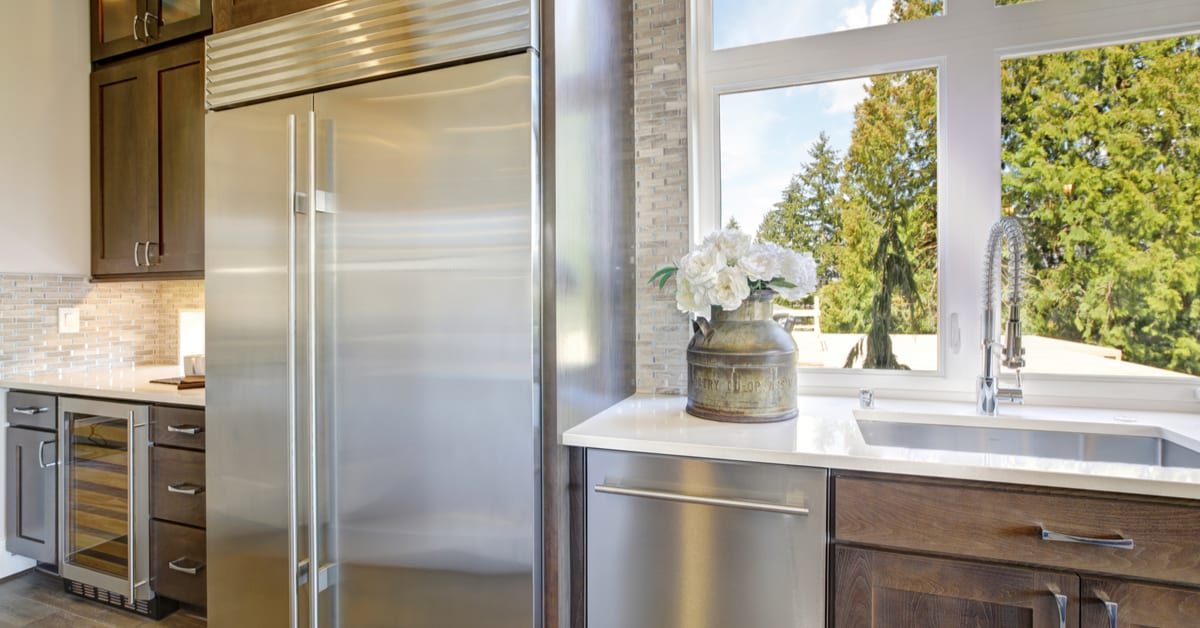A refrigerator is one of the most essential appliances in your home, but do you know what kind of outlet it needs to work properly? Can you plug a refrigerator into a regular outlet, or do you need a special one? What are the electrical requirements and breaker size for a refrigerator?
The answer is that you can plug a refrigerator into a regular outlet, as long as it meets some basic criteria. A regular outlet is a 110-120 volt grounded electrical outlet with a three-prong configuration. However, the outlet should be on its own dedicated circuit, meaning that no other appliances or devices share the same circuit.
This will prevent overloading the circuit and tripping the breaker. The circuit should also be protected by a 15 or 20 amp circuit breaker or time-delay fuse.
How to Plug a Refrigerator Into a Regular Outlet
Plugging a refrigerator into a regular outlet is not difficult, but you should follow some safety precautions and best practices. Here are some tips on how to plug a refrigerator into a regular outlet:
- Locate the outlet that you want to use for your refrigerator. Make sure that it is close enough to the fridge so that you don’t need an extension cord or adapter. Extension cords and adapters can reduce the power supply and increase the risk of fire or shock.
- Check the outlet for any signs of damage or wear. Look for cracks, burns, loose wires, or exposed metal. If you see any of these, do not use the outlet and call an electrician to repair it.
- Check the outlet for grounding. Use a circuit tester or multimeter to verify that the outlet is properly grounded. A grounded outlet will have three wires: hot (black), neutral (white), and ground (green or bare). The ground wire should be connected to the round hole in the outlet and to a metal rod or pipe in the ground.
- Plug the refrigerator into the outlet. Make sure that the plug fits snugly and securely into the outlet. Do not force it or bend it. Do not remove the ground prong from the plug or use a two-prong adapter. This will defeat the purpose of grounding and create a shock hazard.
- Turn on the refrigerator and check for any problems. Listen for any unusual noises, such as buzzing, humming, or clicking. Look for any sparks, smoke, or flames. Feel for any heat, vibration, or moisture. If you notice any of these, unplug the refrigerator and call an electrician.

Why You Need a Dedicated Circuit for Your Refrigerator
A dedicated circuit is a circuit that serves only one appliance or device and has its own breaker or fuse in the electrical panel. A dedicated circuit is recommended for your refrigerator for several reasons:
- It ensures that your refrigerator gets enough power to run efficiently and safely. A refrigerator typically uses about 6 amps of current, but it can spike up to 15 amps when it starts up or defrosts. If other appliances or devices are on the same circuit, they can draw power away from your fridge and cause it to malfunction or shut down.
- It prevents overloading the circuit and tripping the breaker or blowing the fuse. If too many appliances or devices are on the same circuit, they can exceed the capacity of the circuit and cause it to overheat and shut off. This can damage your appliances or devices and create a fire hazard.
- It protects your refrigerator from surges and fluctuations in voltage. If other appliances or devices on the same circuit turn on or off, they can create surges or fluctuations in voltage that can harm your fridge’s electrical components or cause them to wear out faster.

How to Know If Your Refrigerator Is on a Dedicated Circuit
If you are not sure if your refrigerator is on a dedicated circuit, you can try these methods to find out:
- Check your electrical panel for labels. Some electrical panels have labels that indicate which breakers or fuses control which circuits and appliances. Look for a label that says “refrigerator” or “fridge” and see if it corresponds to a single breaker or fuse.
- Check your outlets for labels. Some outlets have labels that indicate which appliances they are intended for. Look for an outlet that says “refrigerator” or “fridge” and see if it is connected to only one wire.
- Test your outlets with an appliance lamp. An appliance lamp is a small light bulb that plugs into an outlet and lights up when there is power. You can use it to test which outlets are on the same circuit as your fridge. Plug an appliance lamp into an outlet near your fridge and turn on your fridge. Then go to your electrical panel and turn off each breaker or fuse one by one until the appliance lamp goes off. This will tell you which breaker or fuse controls your fridge’s circuit.

Conclusion
You can plug a refrigerator into a regular outlet, as long as it is a 110-120 volt grounded electrical outlet with a three-prong configuration. However, you should make sure that the outlet is on its own dedicated circuit, protected by a 15 or 20 amp circuit breaker or time-delay fuse. This will ensure the safety and performance of your fridge and prevent any electrical problems.




